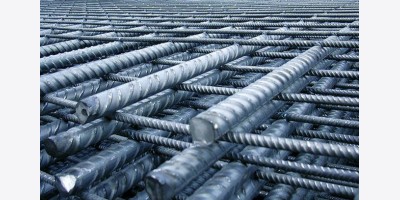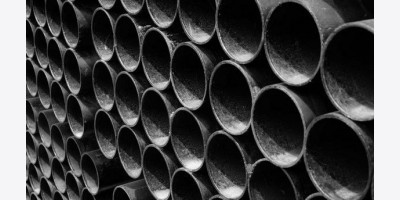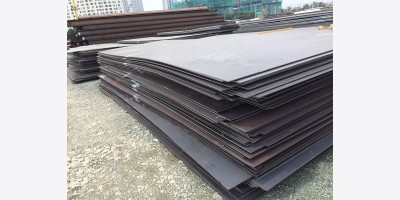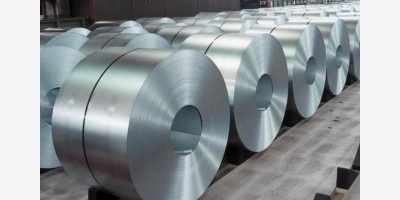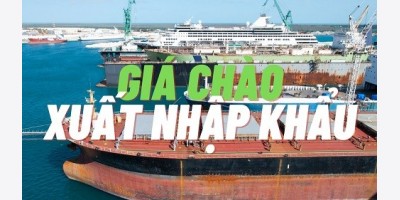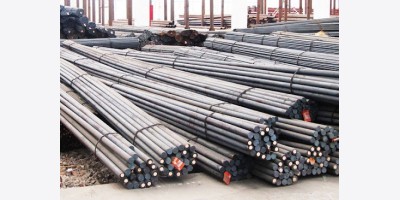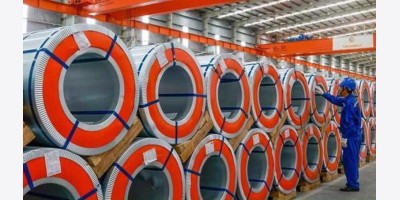| | ||
| Regional mills in Asia continue to raise their hot rolled coil prices in tandem with climbing raw materials costs. Offers from Taiwan and Korea for 2mm base re-rolling HRC were prevailing at $730-760/tonne fob for April shipments last week. Offers in mid-January were at $710-720/t fob. | ||
| Following the path of eastern Chinese longs producer Shagang Group, northern China’s Hebei Iron & Steel has raised its February list prices for rebar by RMB 150/tonne ($23/t), along with a RMB 100/t ($15/t) increase for wire rod.
| |||||||||||||||||||||||||||
| Brazil's Gerdau group discloses to
| |||||||||||||||||||||||||||
| Nucor is moving ahead with several capital projects aimed at improving the quality of its flat products and increasing its market share. | ||
| Tata Steel is hiking UK sections prices by £95/tonne effective from 6 March, it says in a release sent to | ||
| Baosteel’s focus on increasing the ratio of high-end auto steel in its product mix is paying off. The Chinese steelmaker says that last year its high-strength auto steel sales topped 1m tonnes, a 46% jump over 2009. This will mean less business for the Korean and Japanese mills that had been China's chief suppliers. | ||
| Prices of sections in Tokyo and Osaka strengthened by ¥3,000-5,000/tonne ($36-60/t) last week. This followed price rises tabled by leading producers but was also helped by thin market stocks. Sections producers have raised their prices by a total of ¥13,000/t ($157/t) for December and January contracts to transfer higher input costs and regain profits, they claim. | ||
| A revival of infrastructure projects that has strengthened demand – plus higher input costs – has led Indian producers of round bars to raise prices by around Rs 3,000/tonne ($65/t) over the past month. | ||
| After the price increase announced by Pakistan Steel, local market sources report that rebar prices have risen to PKR 72,000/tonne ($841/t) from PKR 68,000/t ($794/t). | ||
| Eastern China’s major welded line pipe maker Jiangsu Yulong Steel Pipe is restarting its efforts to list on the Shenzhen stock exchange. Yulong is currently waiting for its listed enterprise environmental protection verification to be approved by China’s Ministry of Environment Protection (MEP). | ||
| There were few transactions in China’s domestic scrap market last week ahead of the Chinese New Year holidays. Consequently throughout the country prices remained generally stable.
| |||||||||||||||||||||||||||
| Two Indian commodity market operators announced last Friday that they would begin trading iron ore futures from 29 January. The Indian Commodity Exchange (ICEX) and the Multi Commodity Exchange (MCX) both said the new contracts had received regulatory approvals from India’s Forward Markets Commission. | ||
| The scrap import market in east Asia was quiet last week as the region prepared for lunar new year holidays. Offers are very limited and buying interest is reduced. Most traders describe the current market as soft and weak; others say that the market is flat. But the current lull is expected to be temporary because the regional mils have not been actively importing and will need to replenish their scrap inventories. | ||
| Mergers and acquisitions boosted crude steel output by northern China’s Anshan Iron & Steel to around 30m tonnes in 2010, up by 10m t or 50% from 2009’s 20m t. | ||
| Ongoing discussions between state-owned Steel Authority of India Ltd (Sail) and Japan’s Kobe Steel for a steelworks joint venture have taken a different turn – and one that apparently excludes the latter’s proprietary ITmk3 iron-making technology. | ||
| Demand for Turkish flat rolled steel is not satisfactory in the country’s export markets, especially EU countries. | ||
| Turkish domestic rebar market prices were reported to be stable late last week, although the export markets have seen a rebound. Turkish producers are hesitant to reduce their current official offers down from TL 1,350-1,380/tonne ($839-857/t) including 18% VAT, whereas traders’ prices are around TL 1,300-1,260/t ($807-782/t), | ||
| Greek long producers denied a rumoured intention to close capacities in the next months, | ||
| Merchant bar prices in the northwest European market appear to differ widely currently. While €700/tonne appears to be the mean average cited by market participants, different sources are adamant that the prices they pay are €50/t or more above or below this level. | ||
| Italian plant maker DEM Wire Rolling Technology has just commissioned a new wire rod processing line for a mill in Egypt, the company tells | ||
| Erndtebrücker Eisenwerke (EEW) has announced another investment at its subsidiary in Rostock on the German Baltic Sea coast, the company tells | ||
| Turkey could support a stainless steel production capacity of 800,000 tonnes/year which would be enough to feed the local and neighbouring market demand. The idea was put forward by Mustafa Kelami Sesen, academic member of Istanbul Technical University’s department of metallurgical and materials engineering, at last week’s Turkey mining, metals and minerals summit conference, attended by | ||
| More European engineering steel producers have raised their scrap surcharges for deliveries of hot rolled bars in February compared to January, | ||
| UK container exports of shredded scrap have been very quiet since late December, but now some believe buying from India could be about to pick up. It is possible – after prices into Turkey eased slightly – that UK prices will fall more in line with Indian expectations, says a UK market source. | ||
| Czech coal mining group New World Resources (NWR) has secured a 7% increase in its coking coal prices for deliveries in the first quarter of 2011. Its overall production of coking and thermal coal in full-year 2011 could be similar to last year, but it expects its coke production to fall a little. | ||
| Weak export demand for British scrap and slightly lower Turkish deals do not mean a more sustained price fall is imminent, say UK scrap sellers. Despite a general lack of export buying, supply remains tight, they tellSteel Business Briefing. | ||
| British steel producers have not seen any significant increase in energy costs despite the rise in the crude oil price in recent weeks. Jeremy Nicholson, director of the Energy Intensive Users Group, which includes steel companies, tells | ||
| The German government could veto the European Commission’s proposed benchmarks for the steel industry's greenhouse gas emissions, the German steelmakers’ federation, WV Stahl, tells
| ||||||||||||||||||||||||||||||||||||
| | ||
| The Swedish steel industry expects to continue to rebound strongly in early 2011, | ||
| The freight train that collided with a passenger train in Hordorf in the German state of Saxony-Anhalt on Saturday night was carrying lime from Salzgitter’s Peiner Träger sections plant. The train belongs to Verkehrsbetriebe Peine-Salzgitter (VPS), a transport subsidiary of the steelmaker. | ||
| Italian based re-roller Marcegaglia has commissioned two new automatic lines for the production of electro-welded stainless steel tubes at its Russian Vladimir-based subsidiary, Marcegaglia Ru, the company confirms to | ||
| Russian steelmaker Evraz estimates that Russia hosting the football World Cup in 2018 will generate demand for 2.5m-3m tonnes of steel products for the construction of 13 stadia, a number of hotels, highways and bridges. | ||
| Russia’s Magnitogorsk Iron Steel Works (MMK) increased its production of steel products by 17% to 10.25m tonnes in 2010, accounting for 17% of national production, it says in a statement sent to | ||
Imports of long products into the US showed year-on-year improvements in 2010, but while most major product imports remained below 2008 levels, wire rod imports were actually higher. | |||||||||||||||||||||||||||||||||||||||||||||||
| Evraz Inc NA announced it is making major capital investments at two of its Alberta, Canada oil country tubular goods pipe-making facilities. | ||
| The North American rig count, tracked by petroleum industry consulting firm Barker Hughes, continued its upward trend last week as both US and Canadian counts posted week-on-week increases. | ||
| North American Stainless plans to expand its Ghent, Kentucky, plant with a $30m investment, | ||
|
| ||
|
| ||
|
| ||
|
| ||
|
| ||
|
| ||
|
| ||
|
| ||
|
| ||
| |
| Turkish and Indian scrap reference prices released by The Steel Index (TSI) last Friday both fell slightly after hitting peak prices recently. However, both reference prices are around 5% higher than four weeks earlier. |



